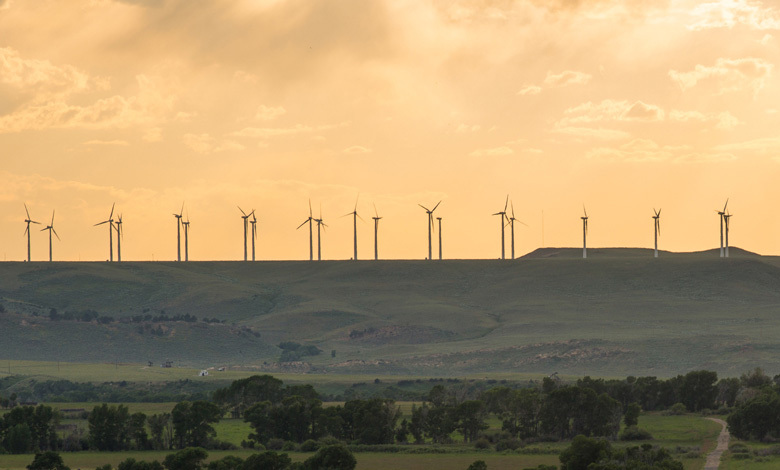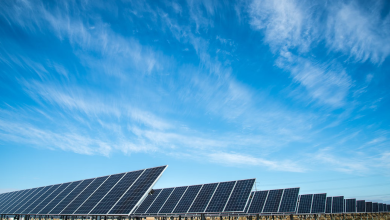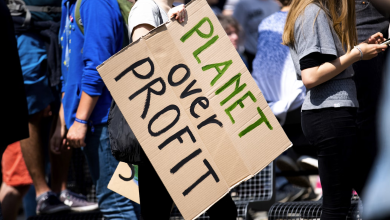Climate Agenda: Imperative of More Electricity in America

Empowering Climate Solutions: A Call for Increased Electricity Usage in America
In the face of an escalating climate crisis, a bold proposal challenges conventional wisdom: America needs to use more electricity, not less.
Even when politicians discuss “energy efficiency,” the main goal is to reduce overall consumption rather than to produce more energy more cheaply.
America ought to take its energy cues from Iceland. Not because practically all of the electricity produced in the tiny Nordic nation comes from renewable sources. Instead, due to the fact that Iceland consumes more electricity per person than the US does.
America needs to produce far more power if it is committed to improving people’s lives and safeguarding the environment.
The conventional wisdom is at odds with this solution. The American public has been conditioned to see the use of electricity as a necessary evil and to turn off the lights as soon as they leave a room. The move to renewables, which has primarily been an attempt to replace conventional energy sources rather than increasing overall supply, is fueled in part by this fear.
Even when politicians discuss “energy efficiency,” the main goal is to reduce overall consumption rather than to produce more energy more cheaply. Just 3% more electricity was used per person in America last year than there was in 1965.
Iceland is more aware. Since 1965, its electricity consumption has increased by 321%. By enabling the production of weather-resistant building materials, powering heavy-duty heating systems, and providing other benefits, every joule makes life easier in a harsh environment, even for those who frequently live in frozen landscapes.
Other nations that consume more electricity than the US include Saudi Arabia, Kuwait, Oman, Qatar (which is the world’s largest user of electricity per capita), and the United Arab Emirates. The Middle East is fighting to stay cool, while Iceland is fighting the cold.
More energy will enable human progress.
These nations understand, as America once did, how vital energy is to human flourishing.
We literally powered our way past obstacles, such as inclement weather and terrible diseases, by using electricity to create new technologies, cures for illnesses, and a host of other things. The environment benefited greatly from our use of energy to discover more efficient ways to use it.
The present is very different from the past. Politicians from California to New York now advise people to reduce their electricity use during extreme weather. California even requested a year ago that owners of electric vehicles cease charging their vehicles. Simply put, if EVs had been around a century earlier, we would have produced more energy, just like Iceland does now.
More than doubling our per capita electricity use, what would happen in America if we did that? While America could use energy to improve the health and happiness of its citizens while combating climate change far more successfully than Iceland, the latter requires energy to make its land habitable.
Plenty of electricity can alleviate the scarcity of water.
Due to a lack of power, some of the greatest inventions in human history have not been implemented on a large scale.
For “vertical farming,” which involves building massive warehouses that employ artificial light to grow all the crops humans will ever need more cheaply and efficiently, we need more electricity in agriculture. We wouldn’t need to farm on nearly as much land, which would be a huge environmental benefit.
The same is true of desalination plants, which are uncommon due to their high energy requirements. We could stop extracting even a single drop from the Colorado River if we removed the salt from practically infinite ocean water.
Read More: 2023 Forecast: Heatwave on Earth, Scientists Raise Climate Alarm
River and the Ogallala Aquifer, which have significant positive effects on the environment and economy.
More electricity would enable us to produce a wider range of durable and environmentally friendly building materials, enabling us to finally move past the wood and bricks that have been used for construction since antiquity.
Furthermore, transit would never be the same. We could eliminate the use of diesel and reduce shipping costs if we had enough energy to power America’s truck fleet, which would result in savings on groceries and other daily necessities for the entire country. We need the power to enable such technological advancements if we are ever to have flying cars and hyperloops.
What’s halting this advancement in the economy and environment?
Environmental concerns, paradoxically. The United States has underinvested in nuclear energy, which is necessary to scale up the production of electricity while investing heavily in finite and highly intermittent energy sources like wind and solar.
Notwithstanding the misinformation spread by some environmentalists, nuclear energy is both safe and dependable. Merely 22% of Americans believe that the federal government ought to dissuade nuclear energy production.
Iceland has used its unique natural resources—plenty of water and geothermal energy—to quickly scale up the production of electricity. With our unique resources, which are ideal for a significant increase in nuclear power, America can do the same.
However, in order for that to occur, the federal government needs to give up its present regulatory framework, which is the end of the road for nuclear power. Since the mid-1990s, only two nuclear reactors have come online; the first was constructed from the ground up and has been operational for thirty years.
Nuclear power generation is expected to decline, despite the fact that most nuclear plants are nearing the end of their life cycles. Instead, it should rise dramatically.
Iceland is a great place to draw inspiration. America can use so much electricity efficiently if that little Nordic nation can, and the most obvious answer is nuclear power.
Future unrestricted energy supplies, along with the associated advancements in the economy and environment, are a right of the American people. When will we make that demand?



